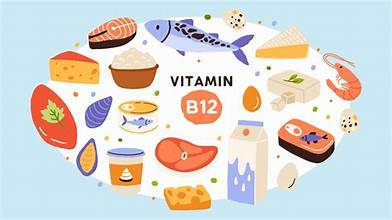In today’s fast-paced world, maintaining a balanced diet rich in essential vitamins and minerals is crucial for overall well-being. One such vital nutrient is Vitamin B12, playing a pivotal role in various bodily functions, including red blood cell formation, neurological health, and DNA synthesis. Deficiency in Vitamin B12 can lead to serious health implications, including anemia and neurological disorders. To ensure optimal health and vitality, it’s imperative to incorporate foods rich in Vitamin B12 into your diet. Let’s explore the importance of Vitamin B12 and delve into some key food sources that can help combat deficiency.
Understanding the Significance of Vitamin B12
Vitamin B12, also known as cobalamin, is a water-soluble vitamin that plays a critical role in numerous physiological processes within the body. From aiding in the formation of red blood cells to supporting neurological function, Vitamin B12 is essential for overall health and vitality. Additionally, Vitamin B12 is involved in the metabolism of amino acids and fatty acids, making it indispensable for energy production and cellular health.
Consequences of Vitamin B12 Deficiency
The repercussions of Vitamin B12 deficiency can be profound, affecting various systems within the body. One of the most common manifestations of Vitamin B12 deficiency is anemia, characterized by a reduced number of red blood cells in the bloodstream. This can lead to symptoms such as fatigue, weakness, and shortness of breath, significantly impacting daily functioning and quality of life.
Moreover, Vitamin B12 deficiency can also have neurological implications, potentially causing symptoms such as numbness and tingling in the hands and feet, difficulty walking, and cognitive impairments. In severe cases, prolonged deficiency can lead to irreversible nerve damage, highlighting the importance of addressing Vitamin B12 deficiency in a timely manner.
Key Food Sources of Vitamin B12
Fortunately, Vitamin B12 is readily available in various animal-based and plant-based foods, making it accessible to individuals following different dietary preferences. Incorporating these nutrient-rich foods into your meals can help ensure an adequate intake of Vitamin B12 and safeguard against deficiency.
1. Fish
Fatty fish such as salmon, trout, and tuna are excellent sources of Vitamin B12. Consuming fish regularly can not only provide your body with essential Omega-3 fatty acids but also boost your Vitamin B12 levels, promoting overall health and vitality.
2. Eggs
Eggs are a versatile and nutrient-dense food that can serve as a valuable source of Vitamin B12. Whether enjoyed boiled, scrambled, or poached, incorporating eggs into your diet can help meet your daily Vitamin B12 requirements while offering a host of other essential nutrients.
3. Dairy Products
Dairy products like milk, cheese, and yogurt are rich sources of Vitamin B12, calcium, and protein. Adding dairy to your daily diet not only enhances bone health but also ensures adequate intake of Vitamin B12, supporting overall well-being.
4. Fortified Foods
In addition to natural food sources, fortified foods such as breakfast cereals, plant-based milk alternatives, and nutritional yeast can be valuable sources of Vitamin B12, especially for individuals following a vegan or vegetarian diet. These fortified products are specifically enriched with Vitamin B12 to address dietary gaps and support optimal health.
5. Plant-Based Options
For those adhering to a plant-based diet, incorporating Vitamin B12-rich plant foods such as fortified cereals, soy products, mushrooms, and nutritional yeast can help prevent deficiency. While plant-based sources may contain lower levels of Vitamin B12 compared to animal products, including a variety of these foods in your diet can contribute to overall intake.




